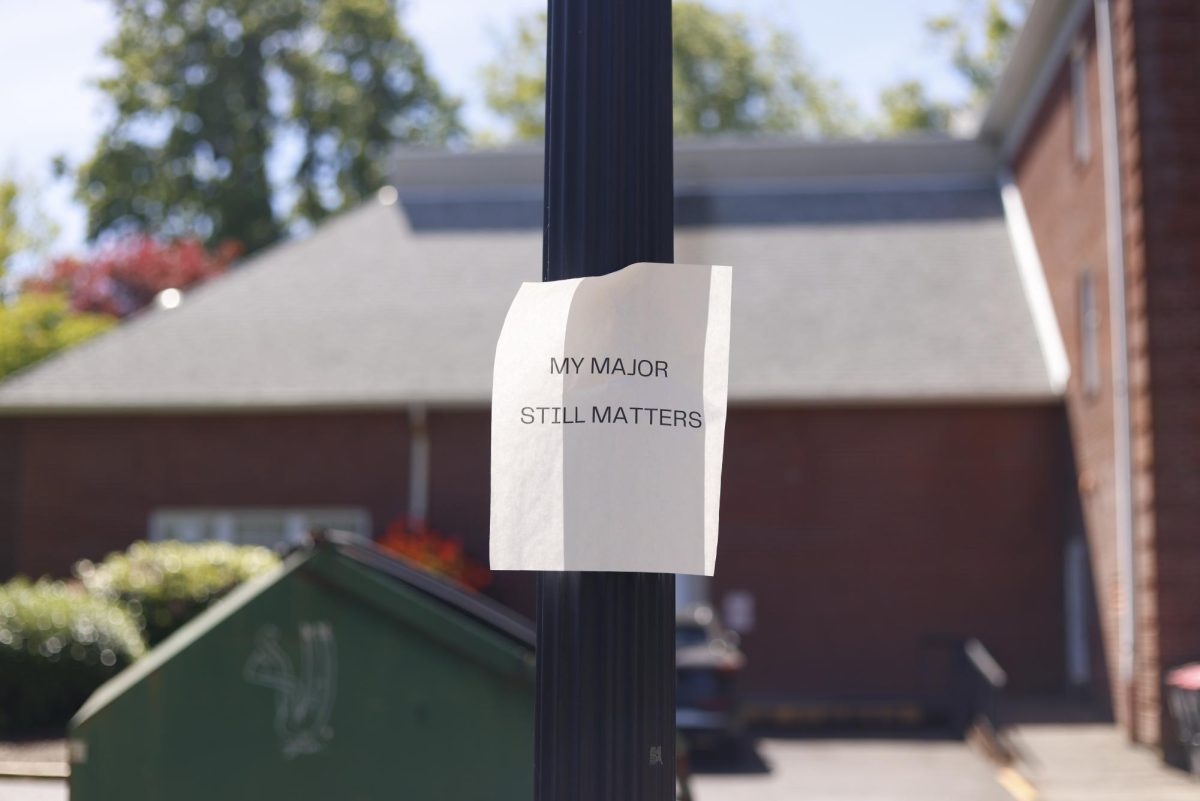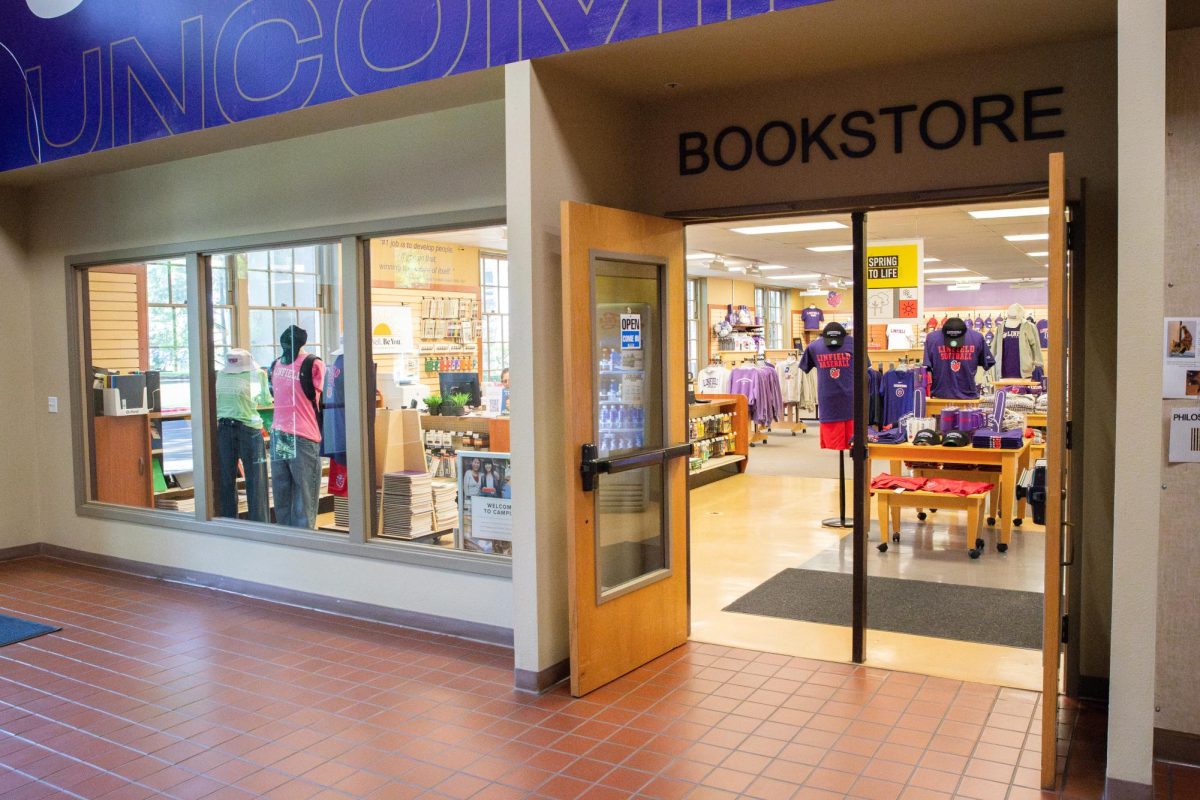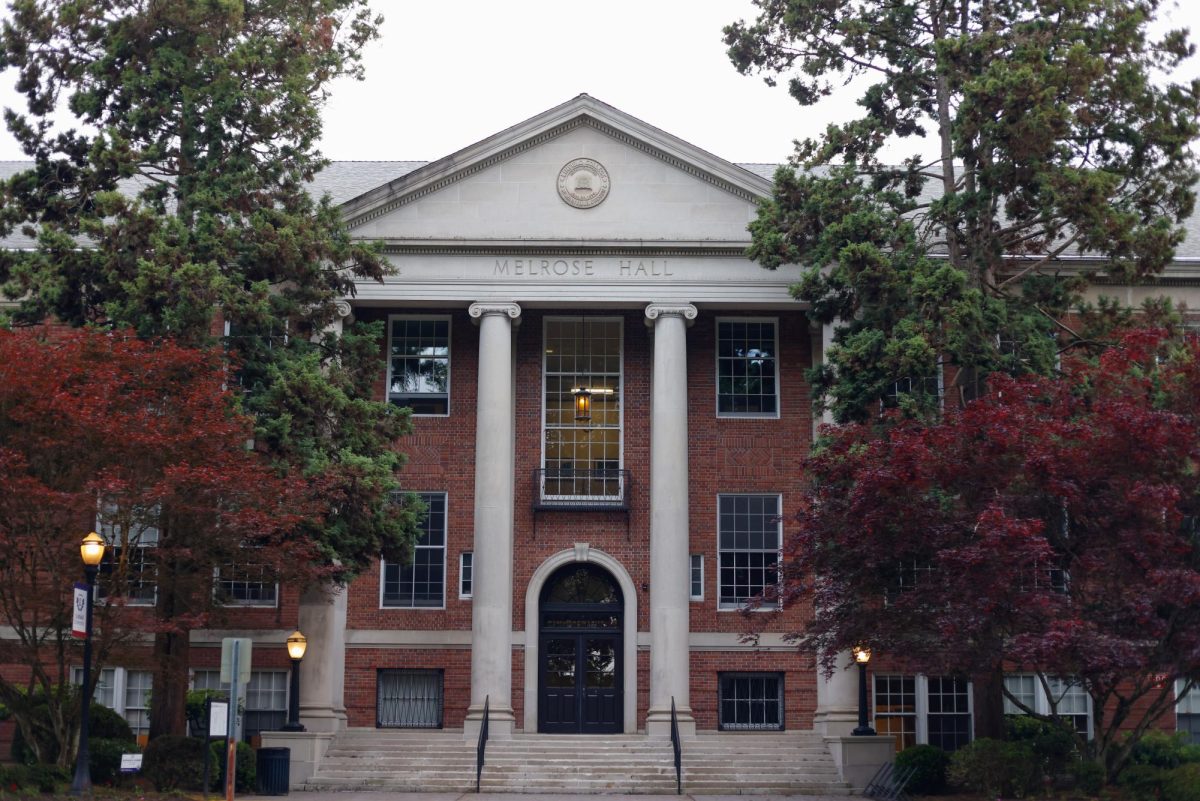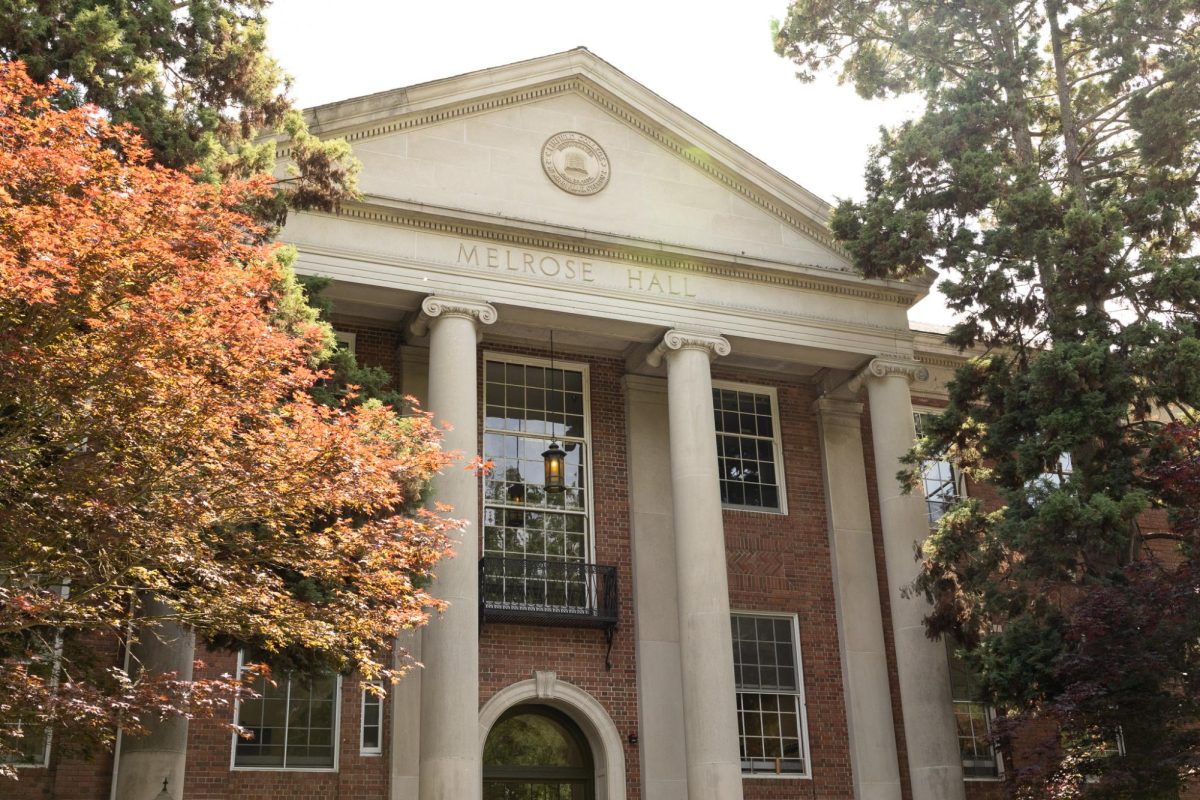Kelly Copeland
Assistant Editor
Serving a feast of enchiladas, empanadas, black beans and rice followed by a video presentation, students and community members raised nearly $2,000 during a March 1 fundraiser to support Habitat for Humanity International in Guatemala.
Over January Term, Jeff Peterson, professor of sociology and anthropology, and 13 of his students spent time building houses in Quetzaltenango, Guatemala. Members of McMinnville Habitat for Humanity and McMinnville Cooperative Ministries accompanied them in the first-ever Habitat collaboration of community members and students.
Although it may have been the first time for such an integration, Peterson said it went better than he expected.
“We were told (by Habitat Guatemala volunteers) that we were one of the best groups they had, in terms of hard work and the group’s flexibility,” he said.
In addition to building houses, the students completed classwork, the framework being “Topics in Latin America: Guatemala, Development and Underdevelopment.” The class allowed students to combine field experience, culture and language exposure with lectures, textbook study and discussion on urban politics, from pre-Columbian times to the present. They each pursued individual research projects, using their Spanish-language skills to conduct interviews.
Since their return on Jan. 28, Peterson, along with his students and the community members, have given several presentations about their experiences. These include discussions at the Sociology-Anthropology table, the McMinnville Public Library, a McMinnville Kiwanis meeting and the March 1 fundraiser.
Sophomore Katelyn Krygowski, who was a student in Peterson’s class, volunteered at the fundraiser and said she was pleased with its outcome.
“It was so successful, and it goes to show you people are so willing to help out for a good cause,” she said. “I hope we can do more things in the future to support the relationship between the college and the community.”
For Peterson, the collaboration between the college and the community members is something crucial to the education of his students.
“I look at this idea of coming together as making Linfield an intersecting point, rather than an ending point,” he said.
He said this comes from emphasizing experiential learning, meaning students are immersed in a new culture that allows them to learn more than they could in a classroom.
As a way to further the relationship between the McMinnville and Guatemala Habitat for Humanity affiliates, Marianne Mills, executive director of Habitat for Humanity, said the organization is planning on inviting several Habitat International Guatemala members to visit McMinnville in the fall.
“We want to continue with the connections we have made,” Peterson said. “We want a reciprocal relationship.”
Because the service aspect of the group’s experience had such a warm response from the McMinnville and Linfield communities, Mills and Jessica Wade, community service coordinator, decided to offer a similar trip as an option for the Alternative Spring Break program in 2009. Applications will be accepted starting in April.
Wade said it was considered an option because the local affiliation is partnered with Habitat for Humanity located in Guatemala, as it sends approximately 10 percent of its earnings to support building projects in the country.
Mills said the addition of the Guatemala Habitat for Humanity build only strengthens the relationship between Linfield and the local Habitat for Humanity affiliation.
“I think we have really established a positive relationship between Linfield, Habitat for Humanity and Habitat for Humanity International Guatemala,” Mills said. “We want to keep this relationship going and this is a great way to do it.”






